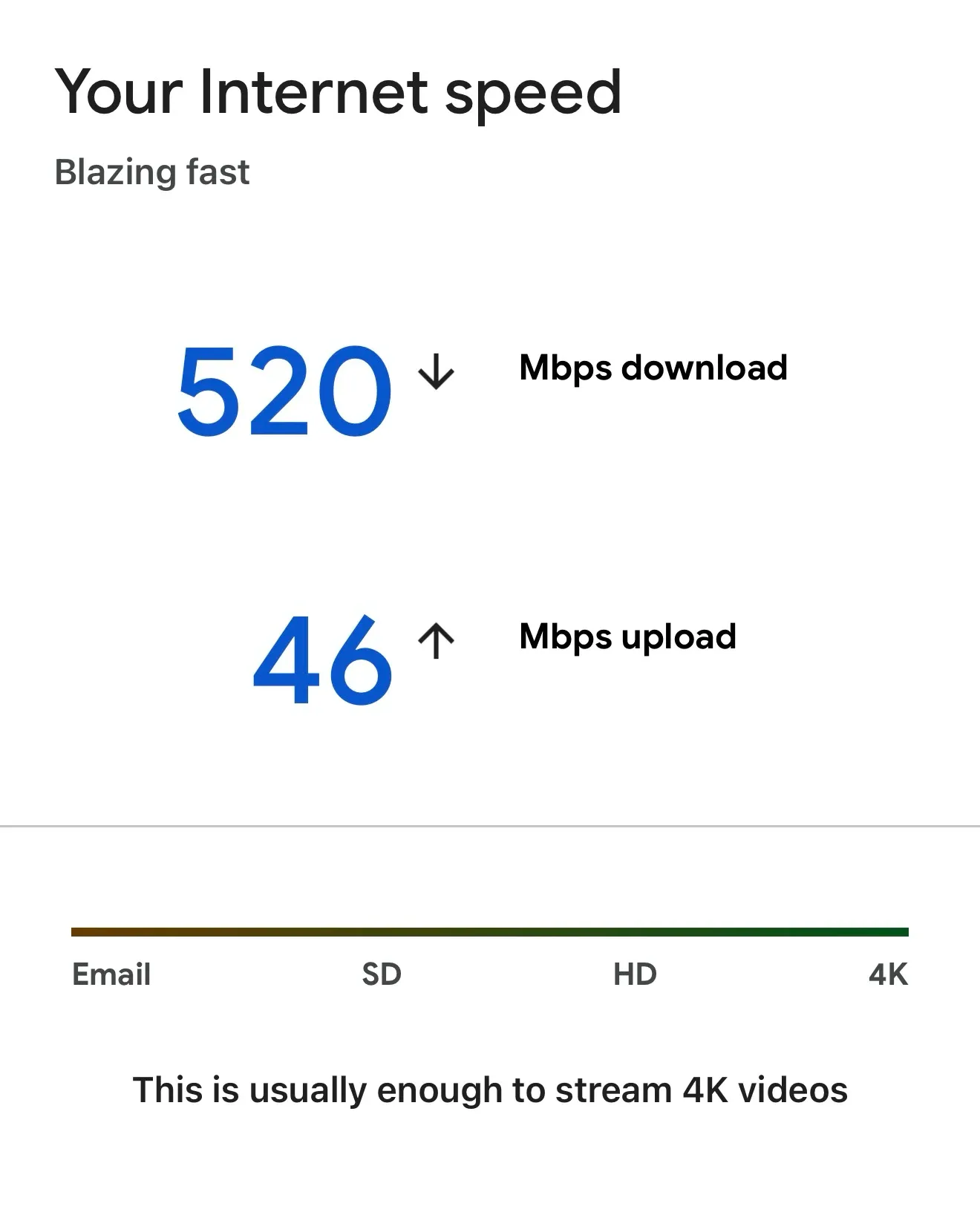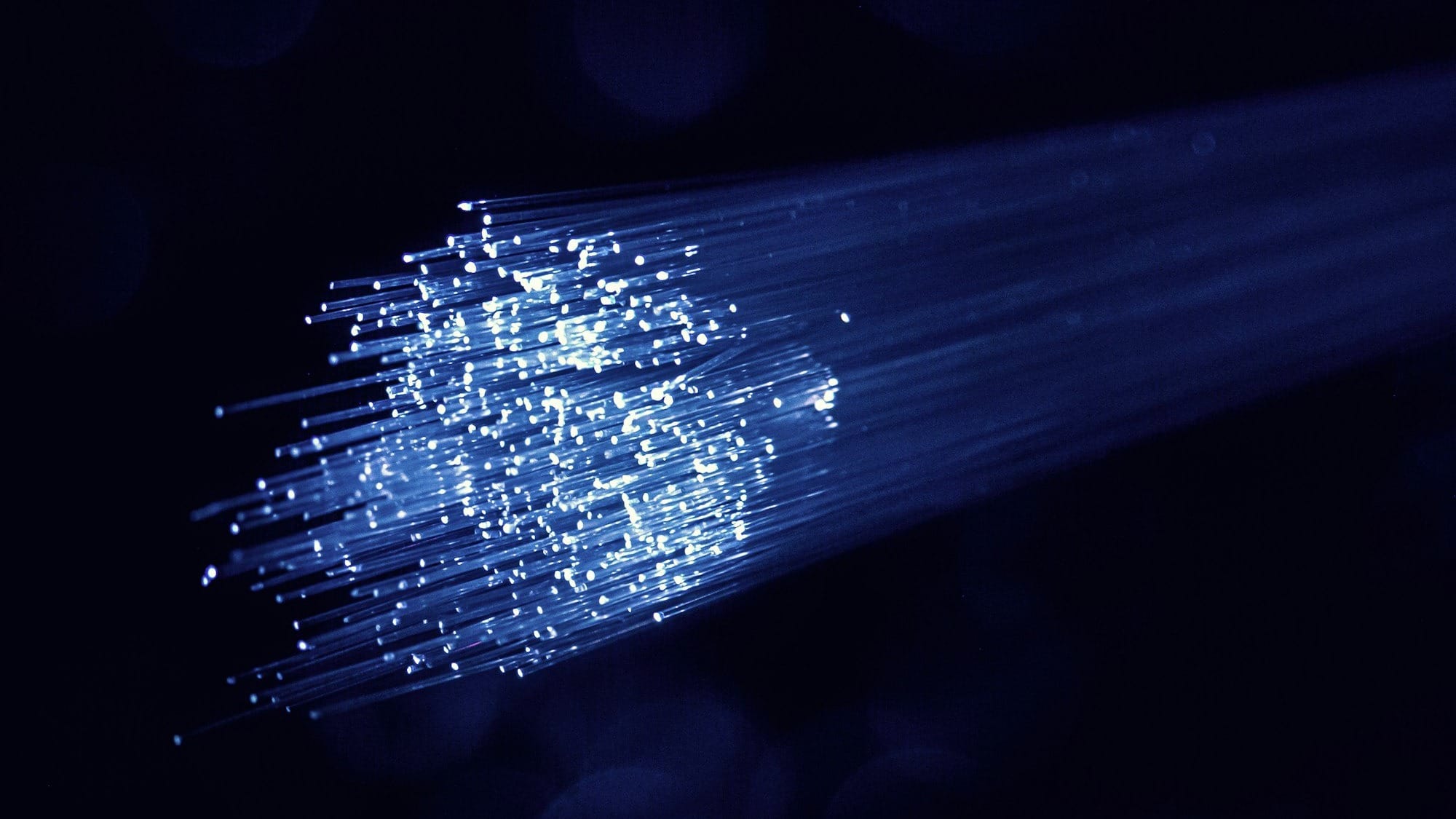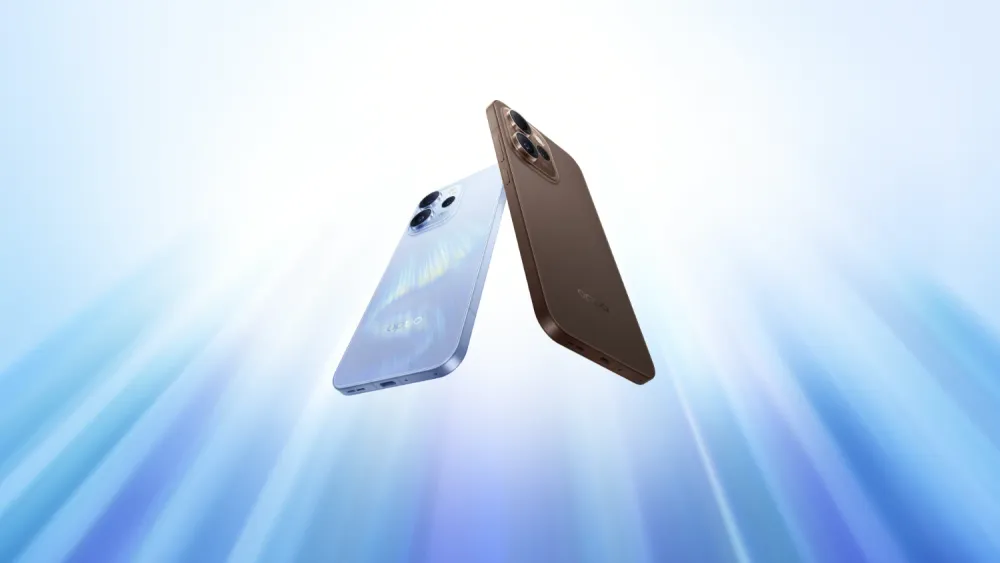I signed up for the NBN the day that it was available in my street. Granted, I was the Telco Publisher at Finder at the time, so it was my job to be on top of this stuff.
And as a home originally connected via FTTN, I was pretty quick (though not day one) to take advantage of the NBN's rollout to FTTP at my house a few years ago.
Today, my home got its latest NBN update as part of the "Accelerate Great" initiative. My previous 100/25 Mbps plan has been upgraded – at no cost to me – to a huge 500/50Mbps plan.
It took a bit of time to happen. I ran a bunch of speed tests this morning, all of them maxing out around the 100Mbps mark. But this afternoon, finally, this glorious result arrived:

Who gets the upgrade?
The NBN wants people to upgrade to faster speeds. So it's upgrading the speeds available at the wholesale level for anyone on a 100Mbps speed or above (though it's up to your ISP as to when it gets delivered).
That means about a third of Aussie households should get faster speeds for nothing.
Back in August, NBN reported that 32% of premises are on 100Mbps or higher plans, and in July it stated that 75% of homes and businesses are on a 50Mbps (download) wholesale speed plan or higher. If I do some rough maths, that means about 43% of Australian homes are on a 50Mbps plan (and 25% still use 25Mbps or less).
So in order to entice Aussies to update their speed tier, they've boosted the speeds available. While people on the 50Mbps plans and below won't see any shift, everyone on a faster plan will see huge improvements at no additional price.
What's more, these new speed tiers are priced at just a few dollars more than the popular NBN 50 tier. Looking at providers like Aussie Broadband (and excluding any limited time offers, an NBN 50 plan costs $93/month, while the new NBN 500 plan costs $95/month – so you get 10x the speed for $2 a month.
This shift in pricing, as well as speeds that are plentiful for most homes, has introduced some competitive offers in the market as well. Exetel has killed off all its plans except for the 500/50Mbps plan, which it has priced at $80/month.
TPG is offering its 500 Mbps plan at the same price as the NBN 50 plan for the first six months at $64.99/month, which will jump to $94.99 after that introductory window.
What the hell am I supposed to do with these faster speeds?
This is the real question, isn't it. You can download bigger files more quickly, stream more concurrent 4K video streams without your network collapsing and – importantly, perhaps – upload your own recordings to the internet faster than before.
As time goes on, this network will allow for easier access to things like 8K content streaming.
But right now, it's mostly just a nice thing to have. NBN points out that one of the key differences between an NBN 2000 plan and a NBN 500 plan is that a 10GB file will download in 1-2 minutes rather than 3 minutes.
That may not seem like much. But compared to an NBN 50 plan, which takes between 28-65 minutes for the same file, and suddenly a few extra bucks is a bargain.
My NBN plan is faster, but my Wi-Fi is still slow!
Home internet is one of those things that is great when it works, but a massive pain when it doesn't. A big part of that is the router, which does some fairly complex things in a relatively easy way most of the time.
But if you've received the speed bump on your NBN plan, and still find your Wi-Fi plan struggling along, then it is most likely a router issue. If you haven't updated your Wi-Fi router since you first got Internet at home, it may not be able to deliver the speeds your new Internet plan can offer.
I have a first generation Google Home mesh network, which is coming up on nine years old. It supports the 802.11ac standard at 1200Mbps in theory, but running speed tests on my devices connected to the home Wi-Fi have been maxing out at about 350Mbps.
Which is to say that even with a fairly decent (though no longer recent) router, I'm losing about a third of my Internet speed.
But I review tech, so the fact I have a nine year old router means I'm probably still more advanced than many Aussie homes. You may need to factor in the cost of an upgraded router if you do end up upgrading.
So tell me – have you upgraded? Share your speed test results in the comments below!
BTTR relies on support from readers like you to keep going. If you'd like to support our work, consider a one-time donation. Every little bit helps us to cover costs and stay independent. 100% of donations go directly to authors. Thanks for your support!







